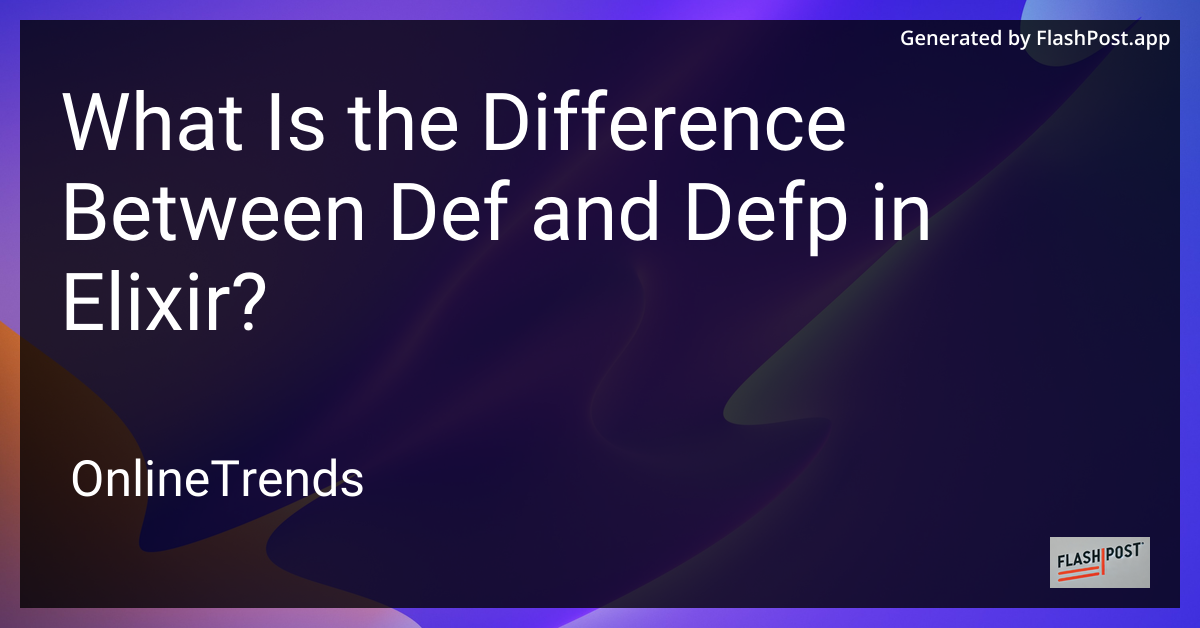
Elixir is a powerful, concurrent, and functional programming language that is gaining popularity due to its efficiency and expressive syntax. One of the common questions that beginners ask is about the difference between def and defp in Elixir. Understanding these differences is crucial for writing effective and organized code. Let's dive into the details.
def - Public Functions
The def keyword in Elixir is used to define public functions. Public functions are functions that can be accessed from outside the module in which they are defined. They form the main interface of a module and are intended to be used by other parts of the program or even other applications.
Syntax
def function_name(args) do # function body end
Characteristics
- Accessibility: Public, accessed everywhere.
- Use Case: When you want to expose a function as part of the module's API.
Example of a public function:
defmodule Math do def add(a, b) do a + b end end
defp - Private Functions
On the other hand, defp is used to define private functions. Private functions are accessible only within the module where they are defined. They are not visible to or callable from outside the module. This is particularly useful for internal helper functions that shouldn't be part of the public interface.
Syntax
defp function_name(args) do # function body end
Characteristics
- Accessibility: Private, accessed only within the module.
- Use Case: When you need internal helper functions that should not be exposed.
Example of a private function:
defmodule Math do defp multiply(a, b) do a * b end end
Key Differences
- Scope:
defcreates public functions whiledefpcreates private functions. - Access: Functions defined with
defcan be accessed from outside their module, whereas those defined withdefpcannot. - Visibility: Public functions are part of the module’s API. Private functions are for internal use only.
Understanding this distinction is crucial for good software design. It helps encapsulate functionality, preventing unintended exposures and misunderstandings in complex systems.
Additional Learning Resources
To learn more about working with Elixir, check out these resources: - Elixir Splitting Lists for more insights on list operations. - Elixir Programming to explore data types and numbers in Elixir. - Data Sharing in Elixir to understand inter-process communication.
Mastering these fundamental distinctions will improve your ability to design robust, maintainable applications in Elixir. Happy coding!